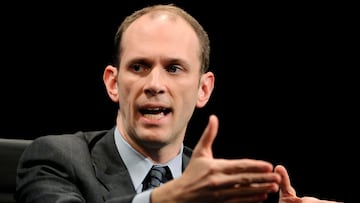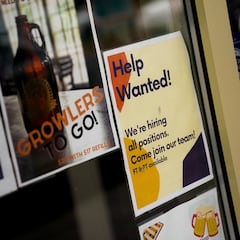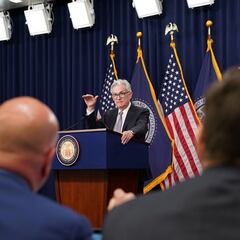What did Chicago Fed President Austan Goolsbee say about a credit squeeze and recession?
The chief of one of the US’s regional reserve banks has sounded the alarm for more financial turmoil approaching the US economy.


Federal Reserve Bank of Chicago President Austan Goolsbee has warned of a recession due to rising interest rates despite voting for one himself.
“The credit crunch or at least the credit squeeze is beginning,” Goolsbee told Yahoo Finance in an interview. “I think you have to say that recession is a possibility.”
A credit squeeze refers to a situation in which access to credit becomes limited or restricted, usually due to a tightening of credit standards by lenders. This can happen when lenders become more cautious about lending money, such as at present with economic uncertainty as well as relatively-high interest rates.
"The credit crunch, or at least a credit squeeze is beginning," says Chicago Fed President Austan Goolsbee.
— Yahoo Finance (@YahooFinance) May 8, 2023
He says the US debt ceiling debate is coming at the worst possible time amid other economic stressors: pic.twitter.com/WD7wl60l55
Rising interest rates has been used by the Federal Reserve to try and tame inflation. Inflation is still high with the annual rate at 5.0 percent though consistent rate hikes have yet to take it to the Fed target of 2.0 percent. Whether this can even be achieved with interest rate manipulation is yet to be seen.
Recent bank collapses such as First Republic have economists concerned that the Federal Reserve will cause a recession by making borrowing so expensive. This affects everything from business loans to mortgages, potentially threatening aspects of many American’s lives.
Debt ceiling discussions come at a bad time
In the same Yahoo interview, Goolsbee described debt ceiling negotiations as coming “at the worst possible time” when banks are looking for the utmost assuredness.
Related stories
“We’re trying to figure out what is a very strange business cycle coming out of the pandemic, weighing off against the tightening that’s coming from these bank failures and uncertainty. And to add on to it this uncertainty about whether the government is going to pay its bills, it just makes it extremely difficult to figure out what will be the conditions for economic growth in the job market.”
Investors have already been shown to be less willing to invest in US Treasury yields that will mature at the time of a possible debt default.

